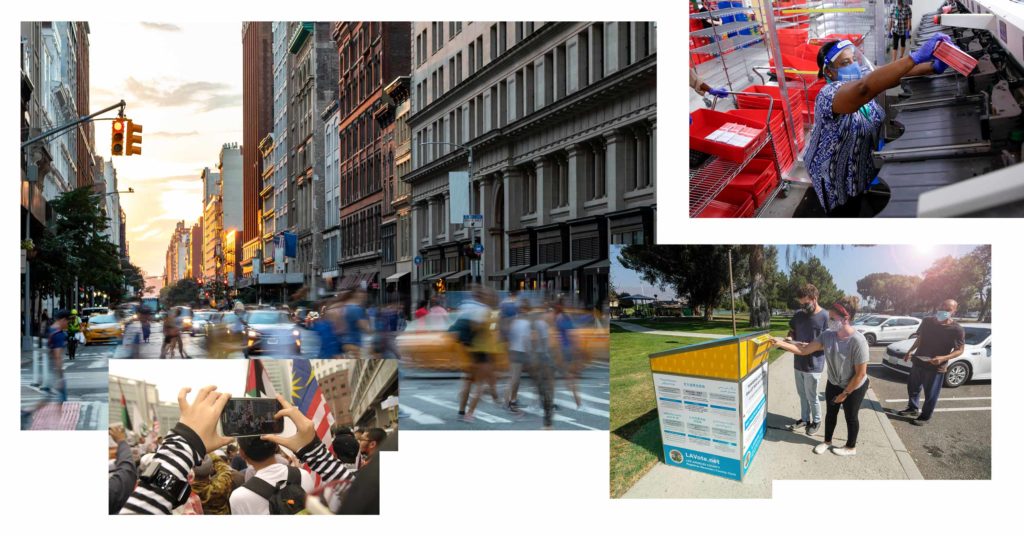2021 Annual Report: Protecting Democracy

In a year that began with an assault on the U.S. Capitol, CDT doubled down on our commitment to safeguarding democracy in the digital age. This work must happen domestically as well as globally. When President Biden’s Summit for Democracy put issues of tech and democracy on a global stage, we asked the leaders involved to set ambitious goals for technology policy, including addressing inequality, supporting healthy online civic spaces, and addressing abusive online content while protecting human rights.
Disinformation is a key issue facing societies around the world, and CDT is focused on breaking down and responding to the problem. We identified key research opportunities at the intersections of online disinformation, race, and gender, and continued to advocate for legislation that would limit the use and sale of personal data and make disinformation harder to target. We also provided guidance to the UN Special Rapporteur on how disinformation disproportionately affects vulnerable communities and results in voter suppression, and also how authoritarian regimes can misleadingly invoke disinformation as a guise for policies that chill freedoms of expression and association.
Disinformation is a key issue facing societies around the world, and CDT is focused on breaking down and responding to the problem.
As we detailed for the U.S. International Trade Commission, governments around the world increasingly engage in digital censorship. Digital censorship tactics include internet shutdowns, government manipulation of private content moderation processes, pressuring intermediaries to implement automated content filtering, and mandating that companies locate data and personnel in-country to increase government leverage for censorship demands.
In the U.S. and EU, there is also work to do. We urged the Biden Administration to create an interagency task force on combating disinformation while protecting freedom of expression, and continued to fight government policies that would limit companies’ ability to moderate content and willingness to host users’ speech. In the EU, we led broad coalition efforts to ensure the Digital Services Act provides a meaningful opportunity to promote platform transparency, accountability, and human rights. We also called for tech companies to increase transparency and accountability around content moderation and clarify their policies, particularly following the Facebook Oversight Board’s decision about Donald Trump’s account. Later in the year, we joined human rights organizations around the world in launching the revised Santa Clara Principles, which provide foundation principles that companies and other content-hosting services should follow as they design their content moderation processes.
CDT provided guidance for companies and governments seeking to put democratic values and human rights first.
CDT also advocated for solutions to the conditions that enable mis- and disinformation about voting and elections to thrive at home and abroad, such as funding, improving, and physically and digitally securing under-resourced elections infrastructure, and conducting rigorous, transparent post-election audits. We urged President Biden to establish a Presidential Commission on Election Resilience and Trust, which would help identify other best practices for bolstering trust in elefunding, improving, and physically and digitally securingctions, and called on the White House and Congress to pass long-overdue electoral reform.
As societies around the world grappled with the challenges of the digital world in 2021, CDT provided guidance for companies and governments seeking to put democratic values and human rights first.